How to Hydrate Dehydrated Skin: Causes, Symptoms, and Ways to Prevent It
Levell Rampono
2 mins read
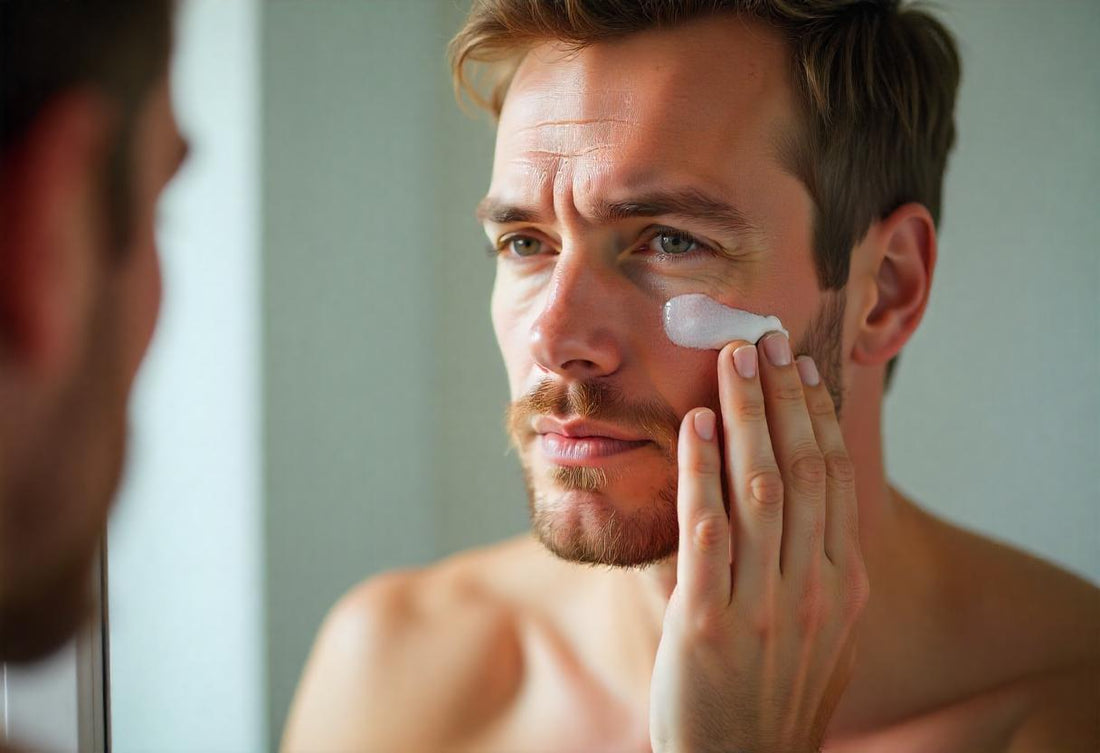
Dehydrated skin is a common skin concern that many people experience, but it is often confused with dry skin. While they share some similarities, dehydrated skin is caused by a lack of water, whereas dry skin is caused by a lack of oils. Understanding how to hydrate your skin, recognizing the causes, and knowing the symptoms can help you address dehydration effectively. This blog will discuss how to hydrate dehydrated skin, its causes, symptoms, and ways to prevent it.
What is Dehydrated Skin?
Dehydrated skin occurs when the skin lacks water content, resulting in a dull, tight, and sometimes itchy appearance. When the skin is dehydrated, it is more prone to inflammation, irritation, and sensitivity. Unlike dry skin, which lacks oil, dehydrated skin can affect anyone, regardless of skin type.
The Difference Between Dehydrated and Dry Skin
While dry skin and dehydrated skin might appear similar, the underlying causes are different:
● Dry Skin: Lacks oil or sebum, which keeps the skin moisturized and protected.
● Dehydrated Skin: Lacks water, which is essential for maintaining the skin's elasticity and plumpness.
You can have dehydrated skin with an oily complexion, and you can also have dry skin that isn’t necessarily dehydrated. Both conditions require different approaches to skincare, so understanding the difference is essential in treating your skin correctly.
Causes of Dehydrated Skin
Several factors contribute to dehydrated skin. Some are internal, while others are external environmental factors. Here are some common causes:
1. Weather and Environmental Changes
Extreme weather conditions, like cold winters or hot summers, can strip the skin of moisture. Air conditioning in the summer and heating in the winter can also dry out the air, leaving your skin without enough hydration.
2. Not Drinking Enough Water
Dehydration occurs internally when you aren’t drinking enough water and hydrating beverages. This can directly impact the skin, making it look dry and lifeless. Your body needs water to maintain all of its functions, including skin health.
3. Harsh Skincare Products
Some skincare products, particularly those containing alcohol, sulfates, and fragrances, can disrupt the skin’s natural moisture balance. Over-cleansing or using products that are too harsh can remove the skin of its natural hydration.
4. Hot Showers and Baths
While hot showers might feel soothing, the heat can dry out your skin by removing the natural oils and moisture. Over time, this can lead to dehydrated skin. This can also cause irritation and make your skin feel tight or flaky.
5. Aging
As we age, our skin’s ability to retain water declines. Healthy skin is made up of around 30% water, which is essential for maintaining its elasticity. A decrease in hydration leads to reduced elasticity and moisture levels, making the skin more prone to dehydration. Fine lines and wrinkles may become more noticeable as the skin loses its plumpness and hydration.
6. Poor Diet
A diet low in essential fatty acids, antioxidants, and vitamins can contribute to dehydrated skin. More than 50% of the body's water comes from diet, making proper nutrition essential for maintaining healthy skin. Fatty acids are critical in keeping your skin's barrier intact and hydrated. Without proper nutrition, the skin may appear dull, rough, and more susceptible to moisture loss.
7. Stress
High levels of stress can negatively affect your skin's health. When stressed, the body produces more cortisol, which can lead to water loss and dehydration. This can weaken the skin barrier, making it more prone to irritation, breakouts, and premature aging.
8. Overexposure to the Sun
UV rays from the sun can damage the skin's barrier, causing water to escape and leaving the skin more prone to dehydration. Sunburn can further worsen this issue. Prolonged sun exposure can also break down collagen and elastin, leading to premature aging and loss of skin firmness.
Symptoms of Dehydrated Skin
Dehydrated skin presents with specific signs and symptoms. It’s essential to recognize these symptoms early to avoid long-term damage. Common symptoms of dehydrated skin include:
1. Tightness
Dehydrated skin often feels tight, especially after washing. It may feel like your skin is stretching, which is a sign that it is lacking water. This tight sensation can also lead to discomfort, flakiness, and increased sensitivity to skincare products.
2. Dullness
One of the most noticeable symptoms of dehydrated skin is a dull complexion. Skin may look lackluster, uneven, or tired. Without proper hydration, light doesn't reflect well on the skin, making it appear flat and lifeless.
3. Fine Lines and Wrinkles
Dehydration can enhance the appearance of fine lines and wrinkles, making them more pronounced. This is because the skin lacks the moisture it needs to stay plump and smooth. Proper hydration helps improve skin elasticity, reducing the visibility of these lines over time.
4. Increased Sensitivity
Dehydrated skin can become more sensitive to skincare products, leading to redness, burning, or irritation after using certain products. A weakened skin barrier makes it more vulnerable to environmental aggressors, such as pollution and harsh weather conditions.
5. Dry Patches
While dehydrated skin isn’t necessarily dry, it can lead to dry patches or flakiness, especially in areas where the skin is particularly thin. These patches may feel rough or uneven and can make makeup application appear patchy.
6. Dark Circles
Dehydration can make dark circles around the eyes appear more pronounced. This is because the skin under the eyes is delicate and can show signs of water loss quickly. Lack of hydration can also cause the under-eye area to appear depleted or shadowed, making the circles more noticeable.
7. Excess Oil Production
In some cases, dehydrated skin can cause the body to produce more oil in an attempt to make up for the lack of water. This can result in an oily T-zone. Despite the excess oil, the skin may still feel tight or rough, highlighting the need for proper hydration.
How to Hydrate Dehydrated Skin
Now that we understand what causes dehydrated skin and its symptoms, let’s explore how to hydrate and restore your skin to its natural, healthy state.
1. Drink More Water
The first step in hydrating your skin is to drink plenty of water. Since the human body is made up of about 55% to 65% water, maintaining hydration is essential for healthy skin. Aim for at least 8 glasses of water a day to keep your body and skin hydrated. You can also include hydrating foods, such as cucumbers, watermelon, and oranges, in your diet.
2. Use a Hydrating Cleanser
Instead of harsh, alcohol-based cleansers, opt for a gentle, hydrating cleanser that won’t remove your skin of its natural moisture. Look for products that contain glycerin, hyaluronic acid, or aloe vera, which help retain moisture.
3. Apply a Humidifier
Using a humidifier can help add moisture to the air, especially in winter when the air tends to be dry. This will help your skin retain moisture and prevent dehydration. Placing it in your bedroom can be especially beneficial, ensuring your skin stays hydrated while you sleep.
4. Use Hydrating Serums
Incorporate hydrating serums or boosters into your skincare routine. Look for products that contain hyaluronic acid, glycerin, or squalane to boost the moisture content in your skin. These ingredients are known for their ability to draw moisture into the skin.
5. Moisturize Regularly
Invest in a good moisturizer to lock in the hydration. For dehydrated skin, opt for moisturizers that contain humectants (like hyaluronic acid), emollients (such as oils), and occlusives (like shea butter) to create a barrier that prevents moisture loss.
6. Avoid Hot Showers
Limit hot showers and baths, as they can remove your skin's essential oils. Use lukewarm water instead, and try not to stay in the water for too long. Following up with a hydrating moisturizer immediately after bathing can help lock in moisture and protect your skin.
7. Exfoliate Gently
Exfoliation helps remove dead skin cells that can trap moisture, but over-exfoliating can lead to more dehydration. Use a gentle exfoliator once or twice a week to reveal smoother, hydrated skin.
8. Wear Sunscreen
UV rays contribute to dehydration and premature aging. Always apply a broad-spectrum sunscreen with SPF 30 or higher daily, even on cloudy days. Reapply every two hours, especially if you're sweating or spending extended time outdoors, to maintain protection.
9. Incorporate Healthy Fats into Your Diet
Eating foods rich in omega-3 fatty acids, like fatty fish, nuts, and seeds, can help keep your skin hydrated from the inside out. These fats help maintain your skin's barrier, which is essential for retaining moisture.
10. Manage Stress
Engage in stress-reducing activities, such as meditation, yoga, or deep breathing exercises. Reducing stress can help prevent the depletion of water in your skin. Prioritizing adequate sleep and maintaining a balanced diet can also support overall skin hydration.
Dehydrated skin is a common concern, but with Levwr's range of hydrating skincare solutions, you can effectively restore and maintain your skin’s moisture balance. By understanding the causes, symptoms, and prevention of dehydration, you can keep your skin nourished and glowing. Remember, hydration starts from within, so drink plenty of water and follow a balanced skincare routine with gentle products that help retain moisture. Taking proactive steps can help you achieve radiant, hydrated skin all year long.
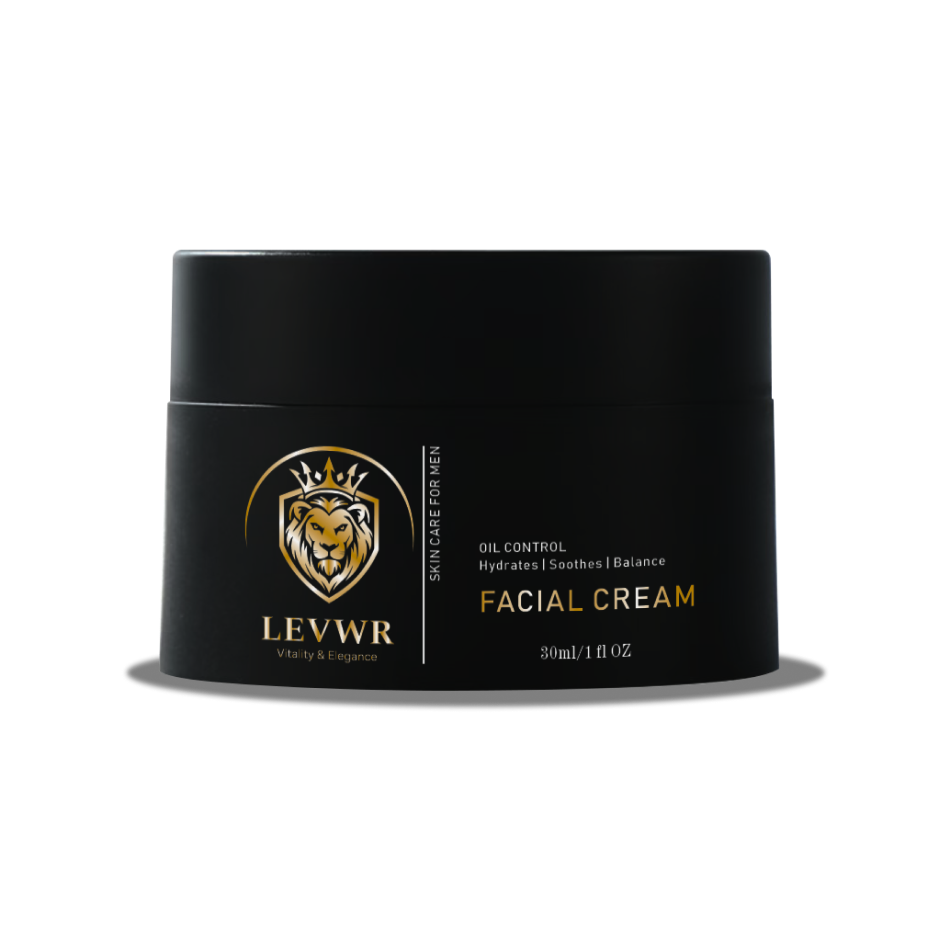
Matte Perfection Moisturizer
$48.25
Complete your routine with a lightweight, non-greasy moisturizer that balances oil production and promotes healing. It hydrates long lastingly while leaving skin soft, even toned, and ready for the day.
-
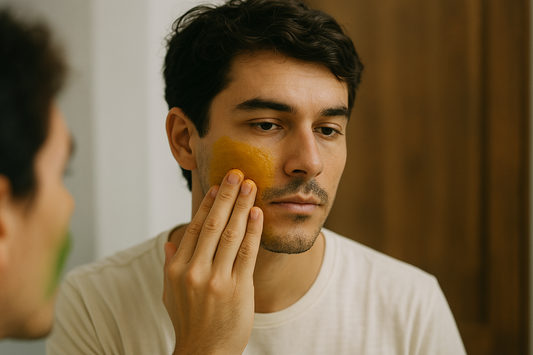
The Power of Nature: Top Skincare Natural Ingre...
When it comes to skincare, everyone wants healthier, glowing skin, and that often means trying different products and ingredients. In recent years, natural skincare has become more popular because it...
The Power of Nature: Top Skincare Natural Ingre...
When it comes to skincare, everyone wants healthier, glowing skin, and that often means trying different products and ingredients. In...
Read More
-
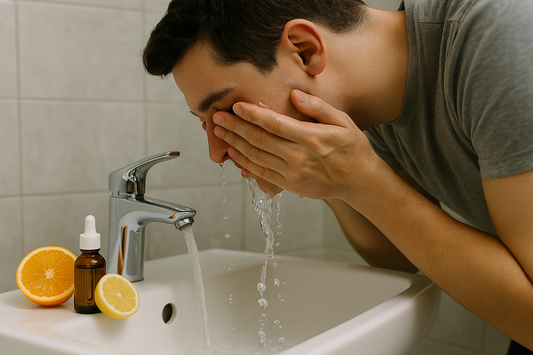
Vitamin C in Skincare: Myths vs. Facts
Vitamin C has long been recognized as one of the most powerful ingredients in skincare. From brightening dull complexions to fighting signs of aging, it seems to do it all....
Vitamin C in Skincare: Myths vs. Facts
Vitamin C has long been recognized as one of the most powerful ingredients in skincare. From brightening dull complexions to...
Read More
-
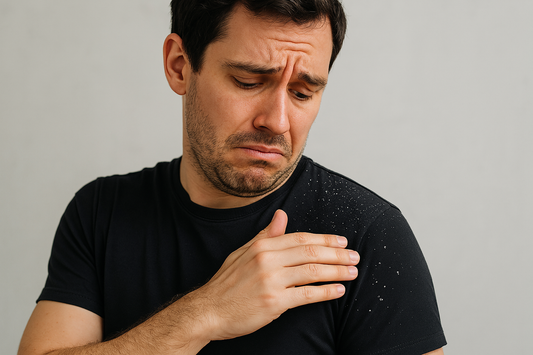
Causes of Dandruff in Men? Understanding the Tr...
Dandruff is a common scalp condition that affects millions of people worldwide, and it’s no surprise that men are particularly prone to it. Whether you're experiencing flakes in your hair,...
Causes of Dandruff in Men? Understanding the Tr...
Dandruff is a common scalp condition that affects millions of people worldwide, and it’s no surprise that men are particularly...
Read More
- Choosing a selection results in a full page refresh.
- Opens in a new window.


